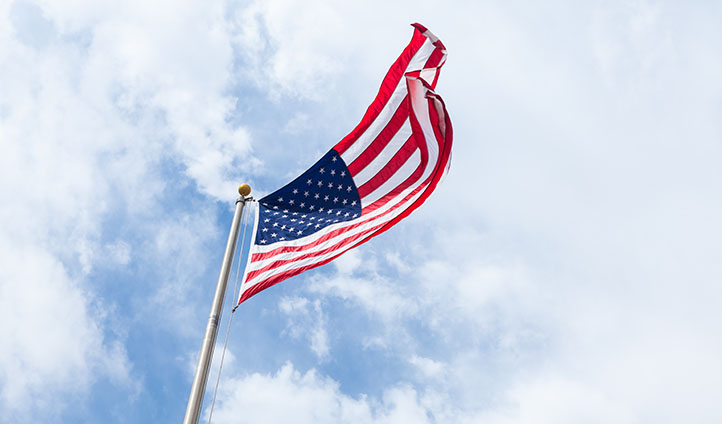Menu
Hot-Topics
May 17, 2022 | SCOTUS Wraps Up Oral Arguments for the Term
Category: Supreme Court Decisions

Jesner v Arab Bank, PLC: Corporations Can’t Be Sued Under Alien Tort Statute
In Jesner v Arab Bank, PLC, 584 U. S. ____ (2018), the U.S. Supreme Court held that foreign corporations may not be defendants in suits brought under the Alien Tort Statute (ATS). However, a sharply divided Court did not agree on the reasoning, which...

Crime-Based Removal Provision Struck Down in Sessions v Dimaya
In Sessions v Dimaya, a divided U.S. Supreme Court struck down a provision of the Immigration and Nationality Act (INA), 18 U.S.C. § 16(b), that authorizes the deportation of any alien convicted of an “aggravated felony,” which includes a “cri...

Hall v Hall: Consolidated Cases Remain Independent for Appeal
In Hall v Hall, 584 U. S. ____ (2018), the U.S. Supreme Court held that consolidated cases remain independent for the purposes of filing an appeal. The Court’s decision was unanimous. Facts of Hall v Hall Respondent Samuel Hall served as careta...

Landmark Takings Case of Lingle v Chevron USA Inc
In Lingle v Chevron USA Inc, 544 U.S. 528 (2005), the U.S. Supreme Court overruled the precedent established in Agins v. City of Tiburon, 447 U. S. 255 (1980), which held that a regulation does not amount to an unconstitutional taking "if it does...

SCOTUS Decision Limits Whistleblower Protection under Dodd-Frank in Digital Realty Trust v Somers
The U.S. Supreme Court recently held that Dodd-Frank’s anti-retaliation provision does not extend to individuals who have not reported a federal securities violation laws to the Securities and Exchange Commission (SEC). The Court’s decision in Di...

Rubin v Islamic Republic of Iran: Terror Victims Lack Recourse
In Rubin v Islamic Republic of Iran, 583 U. S. ____ (2018), the U.S. Supreme Court held that Section 1610(g) of the Foreign Sovereign Immunities Act of 1976 does not provide a freestanding basis for parties holding a judgment under Section 1605A to a...

Class v United States (2018) Guilty Plea Does Not Bar Federal Criminal Defendant from Challenging Constitutionality of Statute of Conviction
Facts of Class v United States A federal grand jury indicted Rodney Class for possessing firearms in his locked jeep, which was parked on the grounds of the United States Capitol in Washington, D. C. Appearing pro se, Class asked the Distric...

Brown v Legal Foundation of Washington (2003)
In Brown v Legal Foundation of Washington, 538 U.S. 216 (2003), the U.S. Supreme Court held that the use of interest on lawyers' trust accounts to pay for legal services provided to the needy did not constitute a state taking in violation of the Just...

No Taking Clause Exception to Full Faith and Credit Statute in San Remo Hotel v City and County of San Francisco
In San Remo Hotel v City and County of San Francisco, 545 U.S. 323 (2005), the U.S. Supreme Court declined to create an exception to the full faith and credit statute in order to provide a federal forum for litigants seeking to advance federal taking...

Artis v District of Columbia: Statute of Limitations for State Claims Stops While in Federal Court
In Artis v District of Columbia, 583 U. S. ____ (2018), the U.S. Supreme Court held that bringing state claims in federal court stops the clock on the statute of limitations for those claims. The decision represented the first time that the justices ...
Previous Articles
SCOTUS Wraps Up Oral Arguments for the Term
by DONALD SCARINCI on May 17, 2022
The U.S. Supreme Court has concluded its oral arguments for the October 2021 Term. The justices hea...
SCOTUS Rules Censure of Elected Board Member Didn’t Violate First Amendment
by DONALD SCARINCI on May 10, 2022
In Houston Community College System v. Wilson, 595 U.S. ____ (2022), the U.S. Supreme Court held th...
Supreme Court Breach Is Not the First Involving Roe v. Wade
by DONALD SCARINCI on
The recent disclosure of Justice Samuel Alito’s decision purporting to overturn Roe v. Wade is ar...
The Amendments
-
Amendment1
- Establishment ClauseFree Exercise Clause
- Freedom of Speech
- Freedoms of Press
- Freedom of Assembly, and Petitition
-
Amendment2
- The Right to Bear Arms
-
Amendment4
- Unreasonable Searches and Seizures
-
Amendment5
- Due Process
- Eminent Domain
- Rights of Criminal Defendants
Preamble to the Bill of Rights
Congress of the United States begun and held at the City of New-York, on Wednesday the fourth of March, one thousand seven hundred and eighty nine.
THE Conventions of a number of the States, having at the time of their adopting the Constitution, expressed a desire, in order to prevent misconstruction or abuse of its powers, that further declaratory and restrictive clauses should be added: And as extending the ground of public confidence in the Government, will best ensure the beneficent ends of its institution.
Awards




